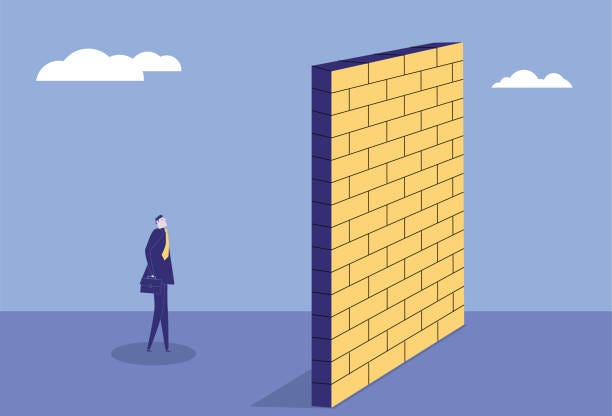Book Appointment Now
Boundaries 101: What Boundaries Are Not Part 1

I know you’ve read a number of articles about boundaries before, and at times, boundaries can be misconstrued as selfish, a set of rigid rules, or even as self-imposed constraints that make you feel confined within a cage of your own creation in life. A week ago, I was having a discussion with someone, and she was feeling really uptight and rigid about her boundaries. I could perceive that when she talked about boundaries, it came across as defensive and constraining. It felt like the boundaries were being set by someone else, and she had to follow them, or else they’d suffer the consequences. It seemed like self-imposed rules, but not stemming from one’s true self, rather from a self who’s been betrayed or has experienced a fair share of manipulation in life. In short, it appeared to be too demanding and too much work.
“Boundaries are the distance at which I can love you and me simultaneously.” — Prentis Hemphill
That’s why, in this article, I’d like to share some of my insights on what boundaries are not. This may help you gain clarity when it comes to developing and setting boundaries in life. One of the best explanations of boundaries that I appreciate is, “Boundaries define us. They define what is me and what is not me. A boundary shows me where I end and someone else begins, leading me to a sense of ownership.” In this article we will explore what boundaries truly mean and what they are not.
- Wall or Barriers
Boundaries are not walls or barriers; rather, they are more like signposts or personal guidelines that help navigate our interactions with others. Walls are rigid, impenetrable, and isolating structures. When we put up walls in our interactions and relationships, we essentially shut ourselves off from others. These metaphorical walls can look like unwillingness to communicate, a refusal to let people in, or a defensive stance that keeps everyone at arm’s length.
Unlike walls, which isolate and shut others out, boundaries define a safe and respectful space for you and those around you. They don’t create an impenetrable fortress but establish a clear line that indicates where your comfort zone ends and where someone else’s begins. In this way, boundaries foster healthy connections by communicating your needs, expectations, and limits while also respecting the same in others. They promote understanding, empathy, and mutual respect, unlike walls that promote isolation and division.
https://biiedwin.gumroad.com/l/BreakingChains
- Control or Manipulation
Another aspect is boundaries are about defining and protecting your own limits, not about imposing control or manipulation on others. When you set healthy boundaries, you are not trying to dictate how someone else should behave or attempting to change their actions to suit your preferences.
Instead, you are taking responsibility for your feelings, needs, and well-being. When you have healthy boundaries, you’re not trying to make other conform to your desires, but rather it’s a way of expressing your needs and values clearly. By doing so, you are giving those people around you the opportunity to respect your boundaries voluntarily.
- Punishment or Retaliation
Boundaries should never be used as a form of punishment or revenge for someone’s wrongdoing. While someone’s wrongdoing may serve as a wake-up call to help you understand the significance of healthy boundaries, it should not be the ultimate aim.
Their betrayal or actions can bring into your awareness your need for stronger boundaries, enabling you to work on developing healthier ones. The purpose of boundaries is not to inflict harm or seek retribution against those who have wronged you; it is about safeguarding your well-being and maintaining your personal integrity. Healthy boundaries foster respect, open communication, and understanding, rather than perpetuating a cycle of negativity and harm.
- Permanent or Inflexible
Boundaries are not meant to be permanent or inflexible; instead, they should remain adaptable to changing circumstances and the growth of both individuals and relationships. Think of boundaries as guidelines that can be adjusted as needed. For instance, if you initially set a boundary with a friend about how often they can call you during your work hours, you can later adapt it if your work schedule changes or if their needs evolve. This flexibility allows for healthy adjustments that align with the current context.
By being open to reevaluating and modifying your boundaries, you ensure that they continue to serve your well-being and maintain the harmony of your relationships over time. Boundaries, like any dynamic aspect of life, can and should evolve as you do, ensuring they remain effective and relevant.
https://biiedwin.gumroad.com/l/BreakingChains
Conclusion
There are many misconceptions about boundaries, and I will be sharing the second part of what boundaries are not in the future as I continue researching and learning from my own experiences and from others.
But if there’s one thing you can take from this, it’s that you are in control of your boundaries, and your boundaries are not in control of you. Your boundaries should not feel heavy on you, as if you’re carrying a burden that is making your life difficult. They should make your life easier. If your boundaries are making your life hard, then it simply means there’s something you have to work on within yourself. Get to the point where the boundary is you, and you are the boundary. Your boundaries should serve as tools to create a life of respect, meaning, and connection, not as constraints that weigh you down.
⚠️ And for those of you eager to delve deeper into the world of boundaries, I have an exciting announcement: watch out for my upcoming Boundaries Course, launching in a few weeks’ time. It will provide you with in-depth insights and practical strategies to master the art of healthy boundaries. Stay tuned for more details!
Note from the Author
If you’re ready and you’d like my help with healing, finding peace in life and breaking free from these toxic patterns, then you can book a FREE BREAKTHROUGH CALL with me HERE. Happy healing 💙💙. Feel free to share and comment! Use this information with caution, it comes from my own thoughts & bias, experiences and research😊.






